Table of Contents
Scott Joplin The Entertainer with sheet music
Who Was Scott Joplin?
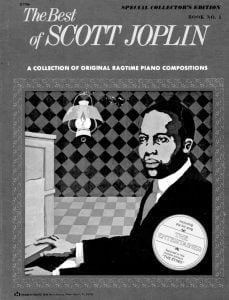
Born in the late 1860s somewhere along the border between Texas and Arkansas, Scott Joplin took up the piano as a child and eventually became a travelling musician as a teen. He immersed himself in the emerging musical form known as ragtime and became the genre’s foremost composer with tunes like “The Entertainer,” “Solace” and “The Maple Leaf Rag,” which is the biggest-selling ragtime song in history. Joplin also penned the operas Guest of Honor and Treemonisha. He died in New York City on April 1, 1917.
Musical Family
Scott Joplin’s exact date of birth and location is not known, though it is estimated that he was born between the summer of June 1867 and January 1868. Born to Florence Givens and Giles Joplin, Scott grew up in Texarkana, a town situated on the border between Texas and Arkansas.
Best Sheet Music download from our Library.
The Joplins were a musical family, with Florence being a singer and banjo player and Giles a violinist; Scott learned how to play the guitar at a young age and later took to the piano, displaying a gift for the instrument. Julius Weiss, a German music teacher who lived in Joplin’s hometown, gave the young pianist further instruction. Joplin was also a vocalist and would play the cornet as Joplin left home during his teen years and began work as a travelling musician, playing in bars and dance halls where new musical forms were featured that formed the basis of ragtime, which had distinct, syncopated rhythms and a fusion of musical sensibilities.
Joplin lived for a time in Sedalia, Missouri in the 1880s, and in 1893 he fronted a band in Chicago during the World Fair. He later settled in Sedalia again while continuing to travel, with the waltzes “Please Say You Will” and “A Picture of Her Face” becoming his first two published songs.
Please, subscribe to our Library.
If you are already a subscriber, please, check our NEW SCORES’ page every month for new sheet music. THANK YOU!
Writing Huge Hit: ‘Maple Leaf Rag’
Joplin studied music at Sedalia’s George R. Smith College for Negroes during the 1890s, and also worked as a teacher and mentor to other ragtime musicians. He published his first piano rag, “Original Rags,” in the late 1890s, but was made to share credit with another arranger. Joplin then worked with a lawyer to ensure that he would receive a one-cent royalty of every sheet-music copy sold of his next composition, “The Maple Leaf Rag.” In 1899, Joplin partnered with publisher John Stark to push the tune. Though sales were initially slight, it went on to become the biggest ragtime song ever, eventually selling more than a million copies.
Joplin focused on composing more ragtime works, with the genre taking the country by storm and Joplin earning acclaim for his artistry. Some of Joplin’s published compositions over the years included “The Entertainer,” “Peacherine Rag,” “Cleopha,” “The Chrysanthemum,” “The Ragtime Dance,” “Heliotrope Bouquet,” “Solace” and “Euphonic Sounds.
Opera Ambitions
Joplin was intensely concerned with making sure the genre received its proper due, taking note of the disparaging comments made by some white critics due to the music’s African American origins and radical form. As such, he published a 1908 series that broke down the complexities of ragtime form for students: The School of Ragtime: Six Exercises for Piano.
Joplin also aspired to produce long-form works. He published the ballet Rag Time Dance in 1902 and created his first opera, A Guest of Honor, for a Midwestern tour in 1903. The production was shut down due partially to the theft of box-office receipts, with Joplin ultimately dealing with great financial losses.
By 1907, Joplin had settled in New York to work on securing funding for another opera he had created, Treemonisha, a multi-genre theatrical project which told the story of a rural African-American community near Texarkana. A precursor to George Gershwin’s Porgy and Bess, Treemonisha was presented in 1915 as a scaled-down production with voice and piano, but would not receive a full-stage treatment for years to come.
Final Years and Legacy
Joplin continued to work on various musical forms and formed his own publishing company with his third wife, Lottie, in 1913. By 1916, he had started to succumb to the ravages of syphilis, which he was thought to have contracted years earlier, and was later hospitalized and institutionalized. Joplin died on April 1, 1917.
Ragtime would enjoy a resurgence during the 1940s, and then in the ’70s became a hugely popular classical genre that also entered the U.S. consciousness via film—”The Entertainer” became the theme song for The Sting, starring Paul Newman and Robert Redford. Joplin’s Treemonisha was also fully staged in 1975 on Broadway. The following year, Joplin received a special posthumous Pulitzer Prize, honoring the man who shaped a genre that influenced decades of music.
“The Entertainer”
The Entertainer is a 1902 classic piano rag written by Scott Joplin. It was sold first as sheet music, and in the 1910s as piano rolls that would play on player pianos.The first recording was by blues and ragtime musicians the Blue Boys in 1928, played on mandolin and guitar.
As one of the classics of ragtime, it returned to international prominence as part of the ragtime revival in the 1970s, when it was used as the theme music for the 1973 Oscar-winning film The Sting. Composer and pianist Marvin Hamlisch’s adaptation reached #3 on the Billboard pop chart and spent a week at #1 on the easy listening chart in 1974. The Sting was set in the 1930s, a full generation after the end of ragtime’s mainstream popularity, thus giving the inaccurate impression that ragtime music was popular at that time.
The Recording Industry Association of America ranked it #10 on its ‘Songs of the Century’ list.
Browse in the Library:
| Artist or Composer / Score name | Cover | List of Contents |
|---|---|---|
| The Complete Piano Player Book 5 by Kenneth Baker |
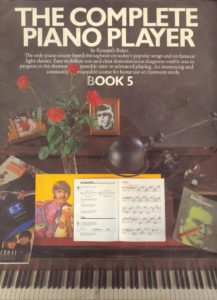 |
The Complete Piano Player Book 5 |
| The Complete Piano Player Easy Blues |
 |
The Complete Piano Player Easy Blues |
| The Complete Piano Player Style Book by Kenneth Baker |
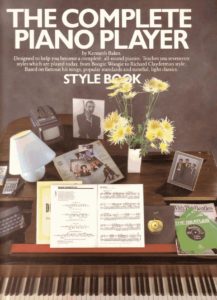 |
The Complete Piano Player Style – Book by Kenneth Baker |
| The Conformist – Main theme (Georges Delerue) | ||
| The Contradictions Of Jazz (Studies In Jazz) by Paul Rinzler (Book) |
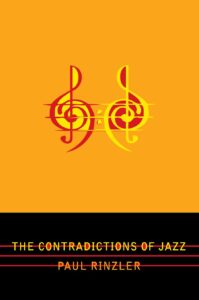 |
|
| The Corrs – Angel | ||
| The Corrs – It’s Easy To Play The Corrs |
 |
The Corrs – It’s Easy To Play The Corrs |
| The Corrs – One Night | ||
| The Corrs – Play Guitar With – MP3 audio tracks embedded in PDF Play Along with Tablature |
 |
Play Guitar With – The Corrs |
| The Corrs – Runaway | ||
| The Cottage on the Beach (Atonement OST) Dario Marianelli | ||
| The Country Music Fake Book |
 |
The Country Music Fake Book |
| The Creative Development of Johann Sebastian Bach Volume I (1695-1717) |
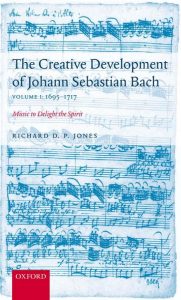 |
|
| The Creative Development of Johann Sebastian Bach, Vol II, 1717-1750 |
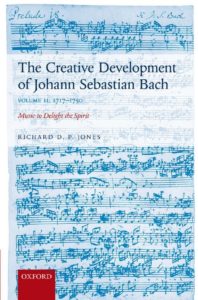 |
|
| The Cure – The Best Of [Guitar Tablature Songbook] |
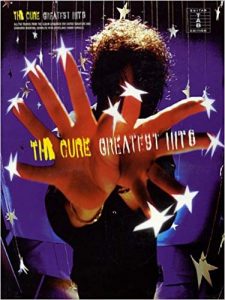 |
The Cure – The Best Of [Guitar Tablature Songbook] |
| The Cure Disintegration(Guitar & Vocal sheet music) with Tablature |
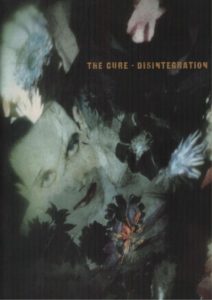 |
The Cure Disintegration Guitar |
| The Curious Case of Benjamin Button – Alexandre Desplat |
 |
The Curious Case of Benjamin Button – Alexandre Desplat |
| The Danish Girl – Fonnesbech (Alexandre Desplat) | ||
| The Danish Girl (Alexandre Desplat) | ||
| The Day of the Dolphin (Georges Delerue) | ||
| The Deer Hunter – Cavatina – Stanley Myers | ||
| The Definitive Jazz Collection Alto Saxophone With Chords |
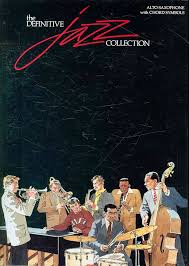 |
The Definitive Jazz Collection Alto Saxophone With Chords |
| The Disappearance Of Hatsune Miku Piano |
 |
|
| The Doobie Brothers Long Train Runnin Piano Vocal Guitar chords |
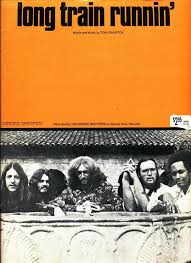 |
|
| The Doors – Hello I Love You | ||
| The Doors – Light My Fire | ||
| The Doors – Riders On The Storm | ||
| The Doors – Rock Score (band songbook) |
 |
|
| The Doors Anthology (Guitar & Tablature) |
 |
The Doors Anthology (Guitar & Tablature) |
| The Doors Guitar Tablature Anthology |
 |
The Doors Guitar Tablature Anthology |
| The Doors Songbook |
 |
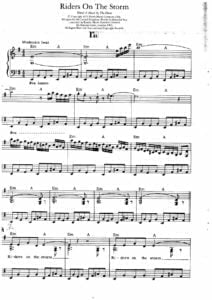 |
| The Doors The Music Of The Doors |
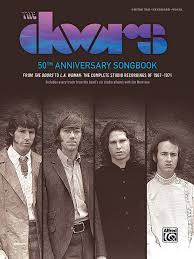 |
The Doors The Music Of The Doors |
| The dream within (Lara Fabian) | ||
| The Eagles (Guitar Backing) Jam with – (with MP3 audio tracks to play along) with Tablature |
 |
The Eagles Jam with |
| The Ecstasy of Gold (Ennio Morricone) | ||
| The Elder Scrolls III Morrowind Title Music |
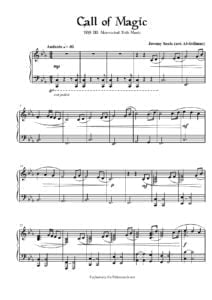 |
|
| The End Of The World – Skeeter Davis |
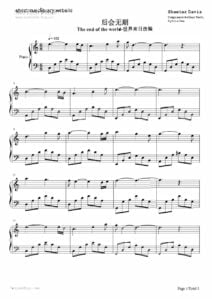 |
|
| The End Of The World – Skeeter Davis (Musescore File).mscz | ||
| The English Patient – Main Theme (Musescore File).mscz | ||
| The English Patient Piano Solo Gabriel Yared |
 |
|
| The Entertainer (Musescore File).mscz | ||
| The European Piano Method Vol. 1 Fritz Emonts |
 |
|
| The European Piano Method Vol. 2 Fritz Emonts |
 |
|
| The Evolution Of Jazz Arranging by Fred Sturm (Book) |
 |
|
| The Evolution Of The Art Of Music Cambridge Librar. (Book) |
 |
|
| The Exciters – Tell Him | ||
| The Exercise Book Guitar Grimoire Series Adam Kadmon Guitar Tablature |
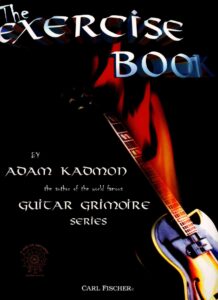 |
|
| The Exorcist Main Theme Piano Solo arr. Robert Miles and Storm Kesocascay | The Exorcist Main Theme Piano Solo arr. Robert Miles and Storm Kesocascay cover | |
| The Fantasticks – Celebration – Tom Jones & Schmidt, Harvey | The Fantasticks. Celebration – Tom Jones & Schmidt, Harvey | |
| The Fault In Our Stars Songbook Sheet Music Piano Vocal Guitar |
 |
The Fault In Our Stars Songbook Sheet Music Piano Vocal Guitar |
| The First Noel – 17th Century English Carol – Easy Piano Arr. With Lyrics (Musescore File).mscz | ||
| The First Principles Of Pianoforte Playing (By Tobias Matthay) (1905) |
 |
|
| The Fountain – Lastman – Clint Mansell | ||
| The Four Seasons – Vivaldi (Musescore File).mscz | ||
| The Four Seasons (Complete) (Musescore File).mscz | ||
| The Fray – How To Save A Life | ||
| The Fray How to Save a Life |
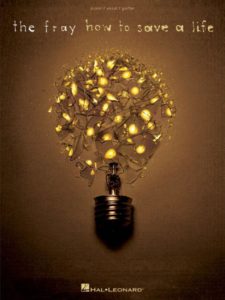 |
The Fray How to Save a Life |
| The Freddie Mercury album (Queen) Piano Vocal Guitar |
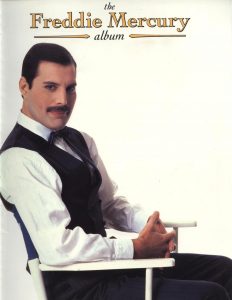 |
The Freddie Mercury -Album |
| The Free Music Analysis Anthology by Mark Feezell | Book Theory | |
| The Frim Fram sauce by Joe Ricardel and Redd Evans -Jazz Play Along |
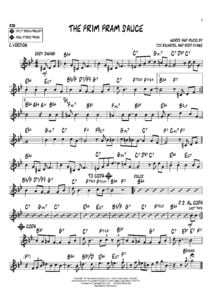 |
The Frim Fram sauceMusic: |
| The Full Monty (The Musical) – Piano Conductor Score Book by Terrence McNally Music and Lyrics by David Yazbek |
 |
The Full Monty (The Musical) – Piano Conductor Score |
| The Fusion Guitar Workbook (Deutsch German) with Tablature |
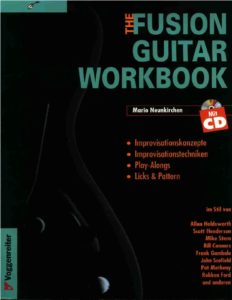 |
|
| The Genius Of Kurt Weill (1938) |
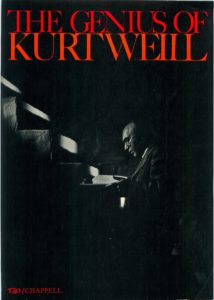 |
The Genius Of Kurt Weill (1938) |
| The Genius Of The Jazz Giants Vol 4 |
 |
The Genius Of The Jazz Giants Vol 4 |
| The Giants Of Jazz Piano |
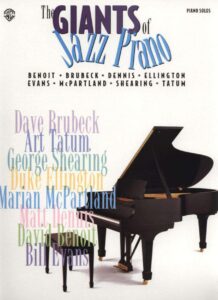 |
The Giants Of Jazz Piano |
| The Gipsy Jazz Guitar Songbook |
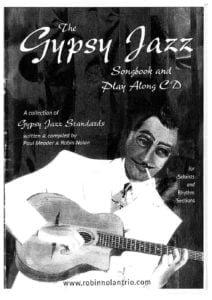 |
The Gipsy Jazz Guitar Songbook |
| The Girl From Ipanema (Antonio Carlos Jobim & Vinícius de Moraes) Jazz Piano Solo arr. sheet music |
 |
|
| The Girl From Ipanema (Guitar Tabs) (Musescore File).mscz | ||
| The Girl with the Sun in her Hair (John Barry) | ||
| The Glorious Ones – I Was Here (Piano vocal) by Lynn Ahrens and music by Stephen Flaherty | The Glorious Ones – I Was Here (Piano vocal) by Lynn Ahrens and music by Stephen Flaherty | |
| The Godfather – Love theme (Nino Rota) | ||
| The Godfather – Main Theme | ||
| The Godfather 2 – End Title (Nino Rota) | ||
| The Godfather Songbook – piano |
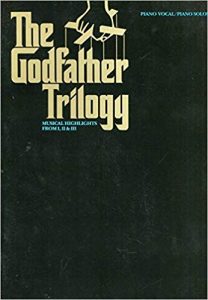 |
 |
| The Godfather Theme (Nino Rota) | ||
| The Godfather Waltz (Musescore File).mscz | ||
| The Godfather Waltz (Nino Rota) | ||
| The Golden Era Of Rock And Roll (Piano, vocal and Guitar Chords) |
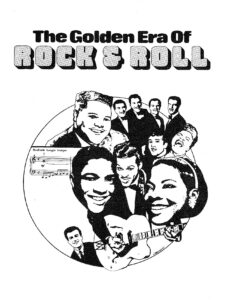 |
The Golden Era Of Rock And Roll (Piano, Vocal And Guitar Chords) |
| The Gravel Road (The Village OST) James Newton Howard | ||
| The Great American Movie Songbook (for organ & keyboard) Very easy |
 |
The Great American Movie Songbook |
| The Great Composers (By Hezekiah Butterworth) (1884) |
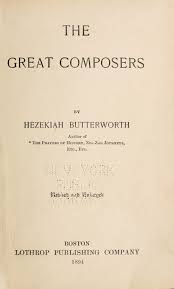 |
|
| The Greatest Love Songs Of The 21st Century |
 |
The Greatest Love Songs Of The 21st Century |
| The Greatest Love Songs Of The 60s |
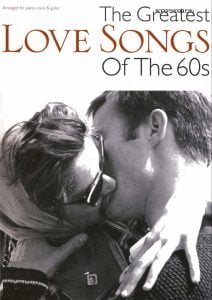 |
The Greatest Love Songs Of The 60s |
| The Greatest Love Songs Of The 70s |
 |
The Greatest Love Songs Of The 70s |
| The Greatest Love Songs Of The 80s |
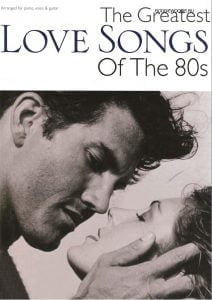 |
The Greatest Love Songs Of The 80s |
| The Greatest Love Songs Of The 90s |
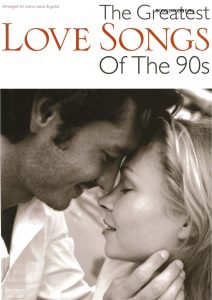 |
The Greatest Love Songs Of The 90s |
| The Greatest Showman Vocal Selections |
 |
The Greatest Showman Vocal Selections |
| The Grinch You’re A Mean One Mr. Grinch (Easy Solo Piano Arr.) By Dr. Seuss And Albert Hague | The Grinch You’re A Mean One Mr. Grinch (Easy Solo Piano Arr.) By Dr. Seuss And Albert Hague | |
| The Grinch You’re A Mean One Mr. Grinch (Jazzy Solo Piano Arr.) By Dr. Seuss And Albert Hague | The Grinch You’re A Mean One Mr. Grinch (Jazzy Solo Piano Arr.) By Dr. Seuss And Albert Hague | |
| The Grinch – You’re A Mean One Mr. Grinch (Easy Solo Piano Arr.) By Dr. Seuss And Albert Hague (Musescore File).mscz | ||
| The Grinch – You’re A Mean One Mr. Grinch (Jazzy Solo Piano Arr.) By Dr. Seuss And Albert Hague (Musescore File).mscz | ||
| The Guitar Works Of Garoto Vol 1 Guitar Scores |
 |
The Guitar Works Of Garoto Vol 1 Guitar Scores |
| The Guitarist’s Scale Book by Peter Fogl with TABs |
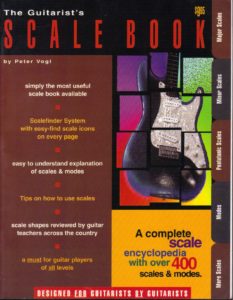 |
|
| The Hanging Tree Sheet Music (From The Hunger Games Mockingjay, Part 1) (James Newton Howard) |
 |
|
| The Harmonious Blacksmith – Gf Händel (Musescore File).mscz | ||
| The Harmony Of Bill Evans by Jack Reilly |
 |
The Harmony Of Bill Evans (Piano Score) |
| The Healing – Lady In The Water | The Healing – Lady In The Water | |
| The Hill (Marketa Irglova) | ||
| The History Of Jazz – Book by Ted Gioia (Oxford Un. Press) |
 |
|
| The history of the blues – Koopmans Andy (Book) |
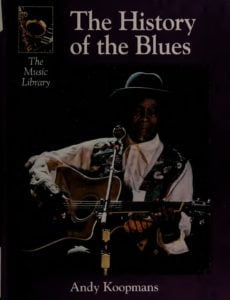 |
|
| The Hobbit – Song of the lonely mountain (Neil Finn) |
 |
The Hobbit song of the lonely mountain |
| The Horse Whisperer Sheet Music Voice Of God – Thomas Newman | ||
| The Horse Whisperer Sheet Music – Montana – Thomas Newman | The Horsewisperer – Montana – Thomas Newman | |
| The Horse Whisperer Sheet Music – The Vast Continent – Thomas Newman | The Horsewisperer – Montana – Thomas Newman | |
| The Horsewisperer – Montana – Thomas Newman | ||
| The Horsewisperer – The Vast Continent – Thomas Newman | ||
| The Horsewisperer – Voice Of God – Thomas Newman | ||
| The House of the raising Sun – Traditional (Guitarr arr. sheet music) | The House of the raising Sun – Traditional (Guitarr arr. sheet music) | |
| The Hundred Best Short Classics Book 2 Cuthbert Whitemore |
 |
The Hundred Best Short Classics Book 2 Cuthbert Whitemore |
| The Hunger Games – James Newton Howard The Train |
 |
|
| The Immigrant – Love theme (The Godfather OST) Nino Rota | ||
| The Immigrant (The Godfather OST) Nino Rota | ||
| The Imperial March Star Wars Sheet Music For Piano by John Williams |
 |
The Imperial March Star Wars Sheet Music For Piano |
| The Improvisation Of Musical Dialogue A Phenomenology Of Music (Bruce Ellis Benson) Book |
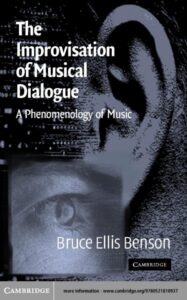 |
|
| The Interpretation Of Piano Music (By Mary Venable) (1913) |
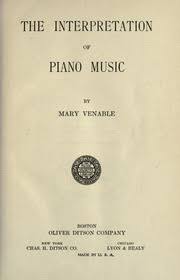 |
|
| The Jazz Piano Book Mark Levine |
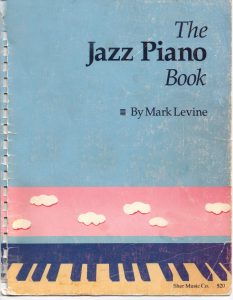 |
jazz piano book |
| The jazz style of John Coltrane – David N. Baker |
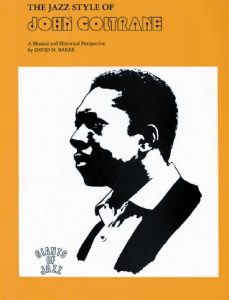 |
|
| The Jazz Tradition by Martin Williams (1993) |
 |
|
| The Joe Pass Collection with Tablature |
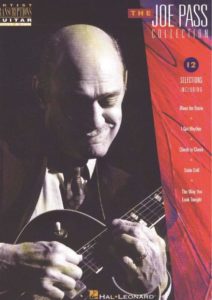 |
The Joe Pass Collection |
| The John Coltrane companion by Carl Woideck |
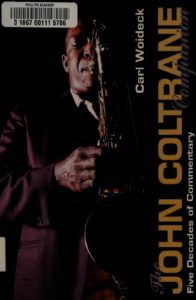 |
